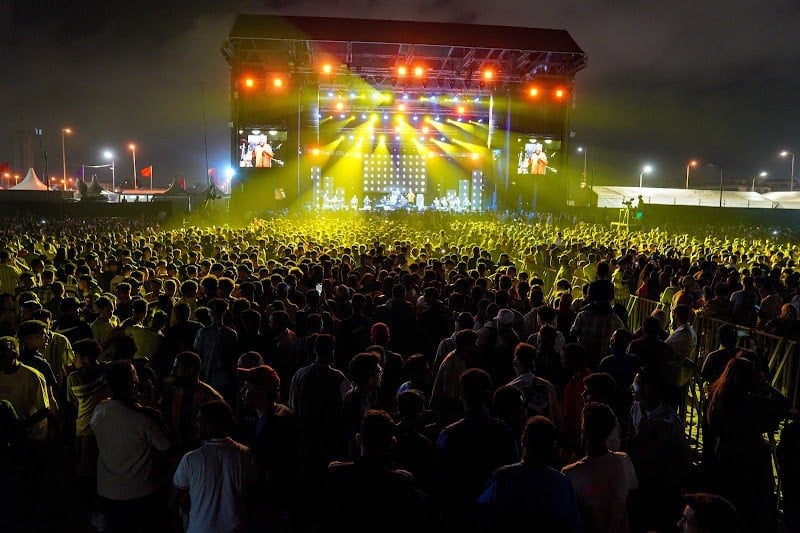The 20th edition of Mawazine has sparked widespread criticism this year. Journalists, artists, and audiences have voiced frustration over how the event was organized, the lack of transparency in artist selection, and the perceived marginalization of Moroccan talent.
At the heart of the criticism is what many are calling an unbalanced and unfair representation of Moroccan artists.
While international stars filled the major stages in Rabat, Moroccan performers were largely confined to the Salé stage, an area considered secondary despite its proximity to the capital.
Critics say this separation creates a symbolic divide, reinforcing the idea that local artists are of lesser value even within their own country.
Many musicians and cultural professionals took to social media to denounce what they described as the “systematic exclusion” of Moroccan voices.
Some posts circulated photos from previous years showing nearly empty venues during Moroccan performances, interpreted not as lack of interest, but as silent protest against an imbalanced lineup.
Ayoub Torabi, secretary general of the Professional Union for the Protection and Support of Artists, criticized what he called the dominance of a programming “lobby” and questioned whether there is a hidden policy aimed at keeping long-time Moroccan artists off the main schedule.
He told Ar that including Moroccan talent in the lineup is not enough if they are not given the right platforms to shine.
Torabi also called for clear, fair standards that uphold Moroccan culture, especially in events supported by public funding.
The late announcement of Moroccan artists in this year’s schedule also raised eyebrows.
Some media outlets questioned why local acts were not revealed earlier alongside international stars, seeing the delay as a lack of transparency and professionalism.
Logistical and organizational issues further deepened the backlash. Journalists reported delayed press accreditations, last-minute venue changes, and limited support for media coverage.
Some boycotted the event entirely, saying they were sidelined and their role as partners in promoting the festival was ignored.
Empty press rooms and fewer microphones at media events underscored the tension between organizers and the local press.
Attendees also shared their complaints. During one show at the Mohammed V Theatre, fans of Lebanese singer Wael Jassar expressed frustration when they couldn’t find the seats they had paid for.
The situation caused confusion and disappointment during a show that was meant to be a highlight of the opening night.
The festival’s digital coverage faced similar scrutiny. There were no live-streamed press conferences and little real-time content from official channels, which critics said reflected a lack of a serious digital communication strategy.
Beyond the execution, the programming itself was considered underwhelming for a 20th anniversary. Some cultural voices said this year’s edition lacked creative vision and failed to bring new or diverse genres to the stage.
There were calls for reforming the selection process, possibly involving public participation or rotating curators, to give the festival a more inclusive and refreshed approach.
A separate controversy erupted over a planned hologram tribute to Egyptian singer Abdel Halim Hafez. His family said they were not consulted and threatened legal action.
Organizers insisted they had the necessary permissions and described the performance as a cultural homage.
The post
Mawazine 2025 draws criticism over organization, lineup, and unequal representation
appeared first on
English – Morocco News
.







